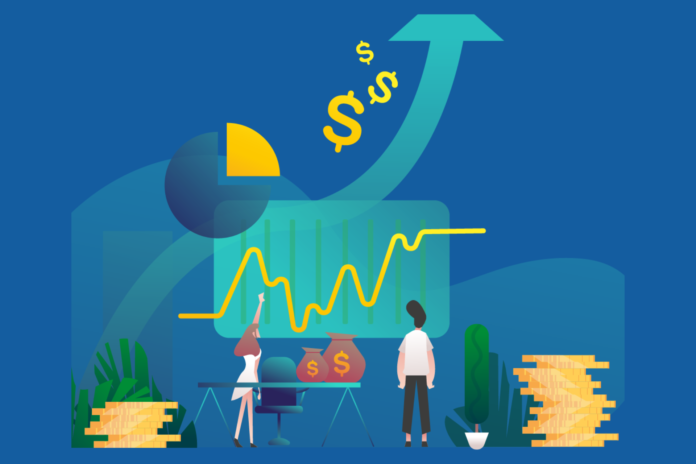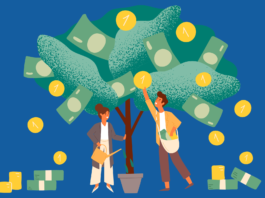What You Should Invest In
Let’s consider the different ‘things’ or asset classes we can invest in. Again taking a broad approach, we are considering things we can purchase now that will pay us money over time while increasing in value.
From a financial point of view, these are the main asset classes but first, let us define what an asset class is.
Key Takeaways
- Think of an asset class as the vehicle that can take you to your investing goals.
- There are six main asset classes.
- The way you combine the asset classes in your portfolio (asset allocation) has an impact on the performance.
What is an Asset Class
An asset is a group of financial instruments that are grouped since they share similar characteristics.
Think of asset classes as the different vehicles that can get you from where you are to where you want to be when it comes to building wealth.
In future articles, we will look deeper at what these characteristics are and how it can impact your approach to investing. We will also cover topics such as Alternative Investments and Asset Allocation.
Main Financial Asset Classes
Stocks or Equities
Public and private companies issue shares and owning these means you own a part of the company. Think of the company as a very large cake or pizza with a share representing a percentage of what the company is worth.
Many of your favourite brands have companies behind them that issue shares which trade in the stock market. Second to Cash or Cash equivalents, stocks are the most liquid asset class which means it is easy to sell them and get the money for it.
If you own shares in a company, the value of your shares is tied in to the performance of the company. When the company performs well, the value of your share goes up and in some cases, the company can pay dividends or do share buybacks. These are important aspects of investing which we will cover later too.
There are different classes of shares and that is worth mentioning. Companies can structure their shares in such a way that the owners of those shares have voting rights and have access to dividends while others do not.
Cash or Cash Equivalents
Cash is money and that is hardly a revelation. Many investors can store their wealth in cash albeit for short periods of time because of how inflation affects the purchasing power of the money. Purchasing power simply refers to what your money is able to buy/purchase.
Cash equivalents is something you would commonly see on a company’s balance sheet and they are a short term investment securities that mature in under 90 days. Commercial Paper and Treasury Bills are common examples of Cash equivalents.
Fixed Income – Bonds
With a Bond, an entity loans money from investors with the promise to pay the investor the full amount at the end of a particular time, and some interest during the time the bond is held.
This entity can include Corporations, Countries, Local Municipalities or any other authorities. As a bond holder, you may choose to wait until maturity, or sell the bond to another buyer.
These are the main important terms to remember when it comes to investing in bonds.
- Coupon: This is the interest that is paid to the investor for buying and holding the bond.
- Face Value: This refers to what you pay for the Bond – the cash equivalent value of the bond.
- Yield: A bond yield is the return rate of the bond. The coupon does not change but the price does as it approaches maturity. There are a number of factors that affect the bond yield.
- Maturity: This is the date when the bond expires and then issuer has to give money back to the borrower or investor that held the bond.
Commodities
Commodities essentially are the raw materials used to manufacture the things we use. This can be basic resources, agricultural or mining materials.
There are two classifications of commodities namely Soft and Hard Commodities.
Soft commodities are items like sugar, coffee, cotton, orange juice, lumber, wheat and so on.
Hard commodities are items such as Oil, Gold, metals and rubber.
Currencies – Forex
Every economy has a currency and this is the primary means by which people pay for goods and services. For a myriad of reasons, the currency of one country may be deemed to be stronger than another.
Factors such as interest rates, employment rate, GDP, import and export balances, can allow investors to look more favourably on one country’s currency compared to another.
The opportunity arises for the investors to trade in the Forex market. The forex market is the most liquid market and is where currencies are traded.
For example, if investors think the US economy will perform better than the European Union, they may choose to buy US dollars and sell the Euro. In this case they will buy the USD/EUR pair.
Forex also allows savvy investors to hedge their positions against loses too. More on this later.
Real Estate
There are different types of real estate and multiple ways in which you can invest in real estate. Investors can use real estate as a vehicle to create wealth by purchasing residential or commercial property and earning cash flow from it.
There are different ways to benefit from real estate so each investor will have their own approach based on their goals.
REITs are another way to invest in real estate. They are Real Estate Investment Trusts that return at least 95% of the profits back to the investors.
REITs earn an income from the properties they own and pay this to investors as dividends.
They provide a way for investors to gain access to the returns from commercial real estate or any other properties that most investors may not be able to invest in by themselves.
Final Thoughts
The choice of what to invest in will be driven by many different factors. Sometimes it is out of interest, exposure, the need to get quicker returns, to earn more dividends or to have high growth.
For every investment objective, there is an asset class that can help fulfil that objective. The manner in which these asset classes are put together and their percentage in a portfolio, can have an impact on the returns.
During periods of high inflation or recessions, the choice of what to invest in is somewhat clearer since some asset classes will do better than others. Also some asset classes are more exposed to risk during certain investment times.
It is important to start with one asset class, understand the different variations of it and branch out.
Some asset classes have low initial capital cost and this is appealing to some investors. It is much cheaper to buy most stocks than it is to purchase real estate.
Think of the asset class as the vehicle that takes you from your current location to where you want to be. And yes, the first asset is yourself so invest in yourself physically and otherwise.


